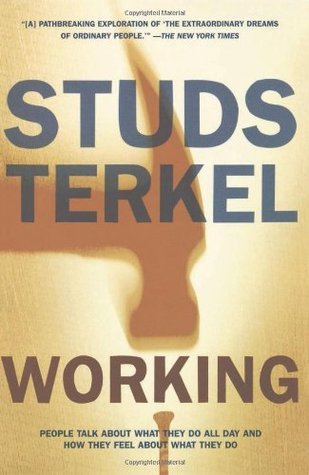
Working: People Talk About What They Do All Day and How They Feel About What They Do
by Studs Terkel
0 popular highlights from this book
Key Insights & Memorable Quotes
Below are the most popular and impactful highlights and quotes from Working: People Talk About What They Do All Day and How They Feel About What They Do:
No highlights available for this book yet.
Browse other books

